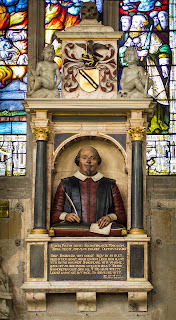Doing BA with English Major in India: A Beginners’ Guide
In India,one of the most sought-after degrees in Arts is Bachelor of Arts with Englishliterature major. However, its popularity is largely due to mistaken preconceptions about it rather than understanding what the program actually is. Hence, it is a good idea to look at whatis NOT in order to understand what it IS and think about why one should or should not doit. This blog attempts to lay out the widelyprevalent misconceptions about BA with English major in the Indian context and provide greater clarity tothe students who want to enter the field or find themselves stuck in it.

Misconception1: It is ‘a Spoken English’ coaching class.
BA with English major will NOT directly provide youthe basic conversational English or basic comprehension skills, grammar orcompositional skills, in fact, it actually DEMANDS that you ALREADY HAVE these foundationallanguage skills. This gives a distinctive advantage to the students from theEnglish-medium background over those not from the English-medium, though somestudents from non-English backgrounds are also known to do well in this program.Nonetheless, they have to put in plenty of extra efforts working on theirEnglish.
You are unlikely to be a good speaker by reading a Shakespeareplay or a Jane Austen novel prescribed in your syllabus. Hence, if you want to doBA with English to do better in IELTS/TOEFL type exams, or impress your crush withyour fluent English, this program is unlikely to be of any great help. We needto keep this in mind because as Indians many of us take bachelor’s degreeprograms to ensure that we don’t remain bachelors for the rest of our lives (whichis also not as bad as it is made out to be).
Misconception2: It is ‘a Written English’ coaching class.
In case you happen to be from an English-medium background,and know that you suck at writing, it would be an error to take up a BA withEnglish major program to fix your writing skills. You are unlikely to be a goodcontent writer or be an expert in writing emails, memos or office presentationsby reading that Shakespeare play or a Jane Austen novel (nowadays ChatGPT cando these things for you).
The need for English for the sake of conversation, comprehensionand composition is usually addressed in the foundational, vocational, abilityenhancement courses and papers that you can take up even WITHOUT doing theBA with English major program. You can take these courses in your college evenif you are doing Bachelors of commerce or science or majoring in subjects like sociology,economics, psychology etc.
In case you think you are a poet or novelist, eventhen, BA with English can hardly be of any great help to you because it is NOTa creative writing program and you can be a good poet or a writer evenwithout doing BA with English (on that note let me point out that neitherShakespeare nor Jane Austen- arguably some of the greatest writers – held collegedegrees in English literature as these degrees did not exist in those days!). Consequently,due to these mistaken preconceptions of the students, the Shakespeare play, orthe Jane Austen novel prescribed in the BA English syllabus in India remainslargely unread, and the exams still cleared.

If you are not discouraged enough, here is a third misconception.But this misconception would actually lead us to greater understanding of whatit really is.
Misconception3: It teaches English Literature.
It does NOT teach us English literature (which in verynarrow and restricted sense means poems, plays, novels, criticism etc). Some thinkerslike Northrop Frye would point out that literature cannot be taught What it actuallyteaches instead is HOW to STUDY literature in ENGLISH.
By HOW to STUDY, I mean the study-skills, critical thinkingskills, and research skills necessary to study literature. We don’t study poemsor novels in our class, but learn HOW to analyze them, study them, criticallyreflect upon them, research them. We pay special attention to language of literature- literature being a linguistic art, we ask questions about distinctivefeatures of literary language, we ask questions about interpretation andclassification of literary texts, we ask questions about the historical,ideological and cultural contexts of production and interpretation of these texts.And as any human activity makes sense only in its context, we lay a greatemphasis on historical contexts of literature and culture. In short, papers on genreslike poetry, drama, fiction and non-fiction, literary history, and literarycriticism.
These activities, traditionally belong to the field ofliterary and cultural criticism and scholarship, and therefore, what you actuallysign up for when you sign up for a BA with English program is the introductory coursein the field of literary criticism and scholarship in English language.
It should be noted here that what once carriedthe label of ‘English literature’ has gone beyond the older definitions of thefield over the past thirty years: it is no longer merely ‘English’ (it mayinclude substantial amount of cultural material translated into English) and nolonger merely ‘literature’ (it may include wider range of cultural narratives:films, graphic novels, or webseries). ‘English Literature’ thus is a field ofquestions, debates and problems and not a set of texts.
I often begin my first year BA English major classesby asking students why the current class is called a first year BA class andnot standard 13 (13 being an unlucky number after all). I try to establish thefact that a bachelor’s degree program in any field provides basic knowledge ina field, a masters program updates our study skills by introducing us toadvance knowledge in the field and finally a research degree involves contributingto more specific field by producing knowledge within our broad area of study.In our case, BA with English program, thus would provide us with the basic andintroductory knowledge in the field of literary and cultural studies in English,hence it is the beginning of one’s specialization rather than an extension ofone’s school education.
In my class, I also point out the woeful colonial historyof university English studies in India, how it started first in the colony (India)and only later it was accepted in the UK. I also refer to the infamous Macaulay’s1835 project of attempting to “form a class” in his words of “who may be interpretersbetween us and the millions whom we govern, -a class of persons Indian in bloodand colour, but English in tastes, in opinions, in morals and in intellect”. Theconsequence of such a project was the deep-seated belief in inherent cultural andeconomic superiority of English and ‘backwardness’ of rest of Indian languages.Hence, the so-called choice made by the students when they chose English majorswas already determined to a large extent by history (And well, English major is THE class where we can discuss these things!).
Besides, this is the reason why 'Spoken English' classes are so often advertised together with ' Personality Development Classes': we think that only those who can speak in English ' have personality' and those who can't , have no personality at all! While the craze for English in India, thanks to colonialismand globalization, comes close to the craze for sex and social media, it sohappens that BA with English major program hardly has any true vocationalvalue in the job market today. This, of course, doesn’t mean it is useless.
Some of my nice teachers would say that studying Englishliterature makes us a good human being, or a good citizen or provides us withcritical thinking skills. As far as I know, these are things that schoolsare supposed to do, just as they are supposed to provide us with the basiccommunication skills. The condition of the world today reveals that schoolshave not really succeeded in these matters. A college degree cannot remedy what schoolshave failed to cure-it is too late. A collegeis not a rehabilitation center for badly educated people (and that means mostof us).
This bringsus then to the fundamental question: why study it at all.
You may say you opt for it because you love literature,but then you may love literature (as many people do) even if you are studying commerce or science, you can continue reading novels, stories and poems (mostlythe ones you like instead of the ones that are forced upon you) as you keepdoing other things for livelihood.
A cynical politician may say that we study it becauseof our colonial hangover (personally I feel that there are other things thatgive us better hangovers).
A good answer would be more intellectually complicated. We can say that as modern Indians we aretrying to understand ourselves in this rapidly globalizing world. Culturallyand historically Indian modernity is deeply influenced by western modernity throughcolonialism and globalization from past two hundred years and English languageand literature have played an extremely crucial role in the process. Therefore,critically studying English language and literature (understood broadly) inIndia helps us in understanding our ‘own modernity’ and how it is historically differentor similar from ‘their modernity’, in short, an act of comparative culturalinquiry.
Hence, using a comparative cultural framework,studying English literature can yield us valuable insights.
And there is a less intellectual, but more interestingreason as well: as Sir Edmund Hillary explained why he climbed Mt. Everest, “becauseit is there”.

He is also have supposed have told Tenzin Norgay, “We'veknocked the bastard off”.




